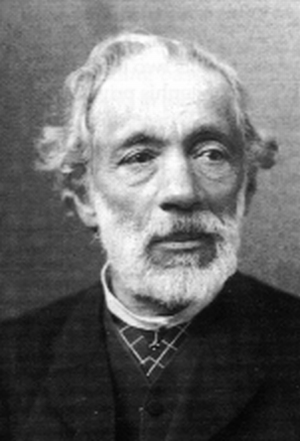Eduard Franck Piano Trio 1 (1848)
Performed by Klaus Hellwig (Piano), Christiane Edinger (Violin) and lluis Claret (Cello).
I. Allegro Moderato Con Espressione - 00:00
II. Adagio Con Espressione - 13:11
III. Scherzo - Prestissimo - 23:13
IV. Finale - 30:37
Eduard Franck (1817-1893) was born in Breslau, the capital of the Prussian province of Silesia. He was the fourth child of a wealthy and cultivated banker who exposed his children to the best and brightest that Germany had to offer. Frequenters to the Franck home included such luminaries as Heine, Humboldt, Heller, Mendelssohn, and Wagner. His family's financial position allowed Franck to study with Mendelssohn as a private student in Dusseldorf and later in Leipzig. As a talented pianist, he embarked upon a dual career as a concert artist and teacher for more than four decades during the course of which he held many positions. Although he was highly regarded as both a teacher and performer, he never achieved the public recognition of his better known contemporaries such as Mendelssohn, Schumann or Liszt. As fine a pianist as the first two and perhaps even a better teacher, the fact that he failed to publish very many of his compositions until toward the end of his life, in part, explains why he was not better known. Said to be a perfectionist, he continually delayed releasing his works until they were polished to his demanding standards. Schumann, among others, thought quite highly of the few works he did publish during the first part of his life.
Franck's First Piano Trio was composed in 1848 and is in four movements. While many of his works show the unmistakable influence of his teacher Mendelssohn, others, such as this piano trio, are entirely original sounding. In the short slow introduction to the first movement, Allegro moderato con espressione, the strings first play a series of chords to which the piano responds with a wistful motif. The first theme then explodes forth with energy. Only later do we hear the motif again as the second theme. A third theme is highly lyrical. In the Adagio con espressione which follows, the violin is given the chance to bring forth the lovely first theme in its entirety before the other two join in. The melody is highly effective and beautifully presented. The thrusting and powerful scale passages of the third movement, Scherzo, prestissimo, bring to mind Schumann. The highly original opening of the finale, Alla breve, has the solo violin beginning with passage which sounds as if Bach had penned it. Soon, however, the others join in to create an up-to-date and rousing conclusion to this fine work.
 |
| Eduard Franck (1817-1893, Composer) (Photo credit: Wikipedia) |










